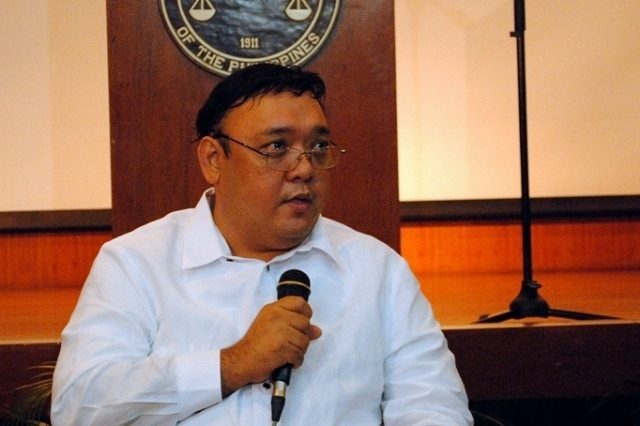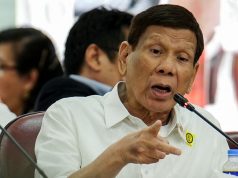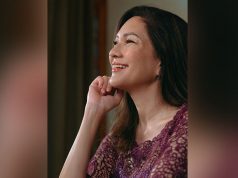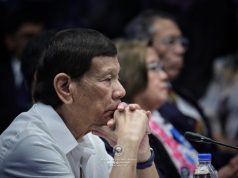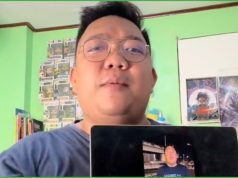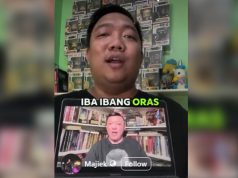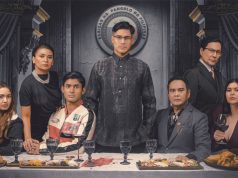MANILA – Centerlaw, the collective of human rights lawyers which lawyer-legislator Harry Roque helped found and steer since 2003, said it will continue to pursue its advocacy after Roque’s designation as presidential spokesman, particularly the cases for court protection of families affected by the Duterte administration’s Oplan Tokhang.
In a statement issued Saturday, Centerlaw – which filed the first case challenging in the Supreme Court the government’s drug policy, and was first to secure a Writ of Amparo for the protection families of ‘Tokhang’ victims and survivors – nonetheless thanked Roque for his substantial contributions to the group, and wished Roque well in his new role, which opposition lawmakers in the House had described as that of defending the indefensible.
Just last week, Centerlaw filed a Writ of Amparo petition for the protection of residents and members of 26 barangays in the San Andres Bukid community in Manila. “Centerlaw continues with this work risking life and limb to reach out and empower communities that have been victimized and to bring justice to those who have been killed in this bloody drug war,” the group’s statement said.
Centerlaw said its defenders remain “committed to do what they have learned to do best in public interest and strategic litigation, advocacy, and education: to uphold the Rule of Law and human rights.”
Since its founding in 2003, Centerlaw said it “supported and represented human rights defenders and survivors in notable cases such as the widows of the slain journalists in the Maguindanao massacre where several policemen involved have been meted administrative penalties; the family of slain transgender woman Jennifer Laude for whom they have helped secure a conviction that was recently affirmed by the courts; journalists who have been sued for libel for their fearless reportage on corruption and public accountability, and whose cases were dismissed even at the prosecutor level; even activists in their undaunted fight for the enforcement and protection of environmental rights in local communities against local and multinational corporations.”
Mentor to rights lawyers
The group recalled having “worked for many years with Centerlaw’s founding President, former Chairperson, friend, and mentor Harry Roque who fearlessly fought for the Center’s advocacies and mentored many of the young lawyers who continue the Center’s legacy. He resigned his position with Centerlaw in 2016 when he joined the Philippine Congress. We remain grateful to Prof. Harry Roque for the many years of service and mentorship in Centerlaw.”
It added: “As he undertakes a new and challenging endeavor as Presidential Spokesperson, we trust that he will be imbued with the same commitment to human rights as he has espoused in his years at Centerlaw.”
Acknowledging Roque’s pronouncement that he will still pursue his advocacies albeit inside government, Centerlaw said it will continue “in its steadfast and independent work outside of government, speaking truth to power, helping communities, and espousing cases against those who violate human rights.”
In a statement on Saturday, Roque had said that in accepting the post of presidential spokesperson, ” I am not condoning the violence surrounding the government’s anti-drug campaign, nor do I intend to further the same. Regardless of whether I am a member of Congress or of the President’s Cabinet, I continue to value the right to life and dignity of every person and do not support the arbitrary killing of any person by the State.”
Roque said he considered the position “with the specific purpose of getting an audience with the President to address key human rights issues in the Philippines.” Being a member of Congress limits his voice, because politicians “who relentlessly criticize the administration are simply ignored and labeled as ‘destabilizers.’”
In contrast, as Cabinet member Roque said he believed he could “be able to advise the President directly regarding the manner and methods he has used to tackle the problem of drugs.”
He added: “The statements uttered by the President on human rights issues are precisely what drew me towards the position of spokesperson. Over the past two years, the administration has repeatedly clarified and reinterpreted the remarks of the President. More often than not, the media and the Filipino people have looked to the spokesperson to determine the true intention behind the President’s statements. Thus, the spokesperson plays a pivotal role in confirming the policy of the State. By taking up this position, I intend to refocus the attention of the people more towards the fundamental position of the State, and less towards the manner by which such has been declared. Similarly, I am committing to reduce, if not totally eradicate, the impact of statements which appear to support genocide or violations of fundamental human rights.”

